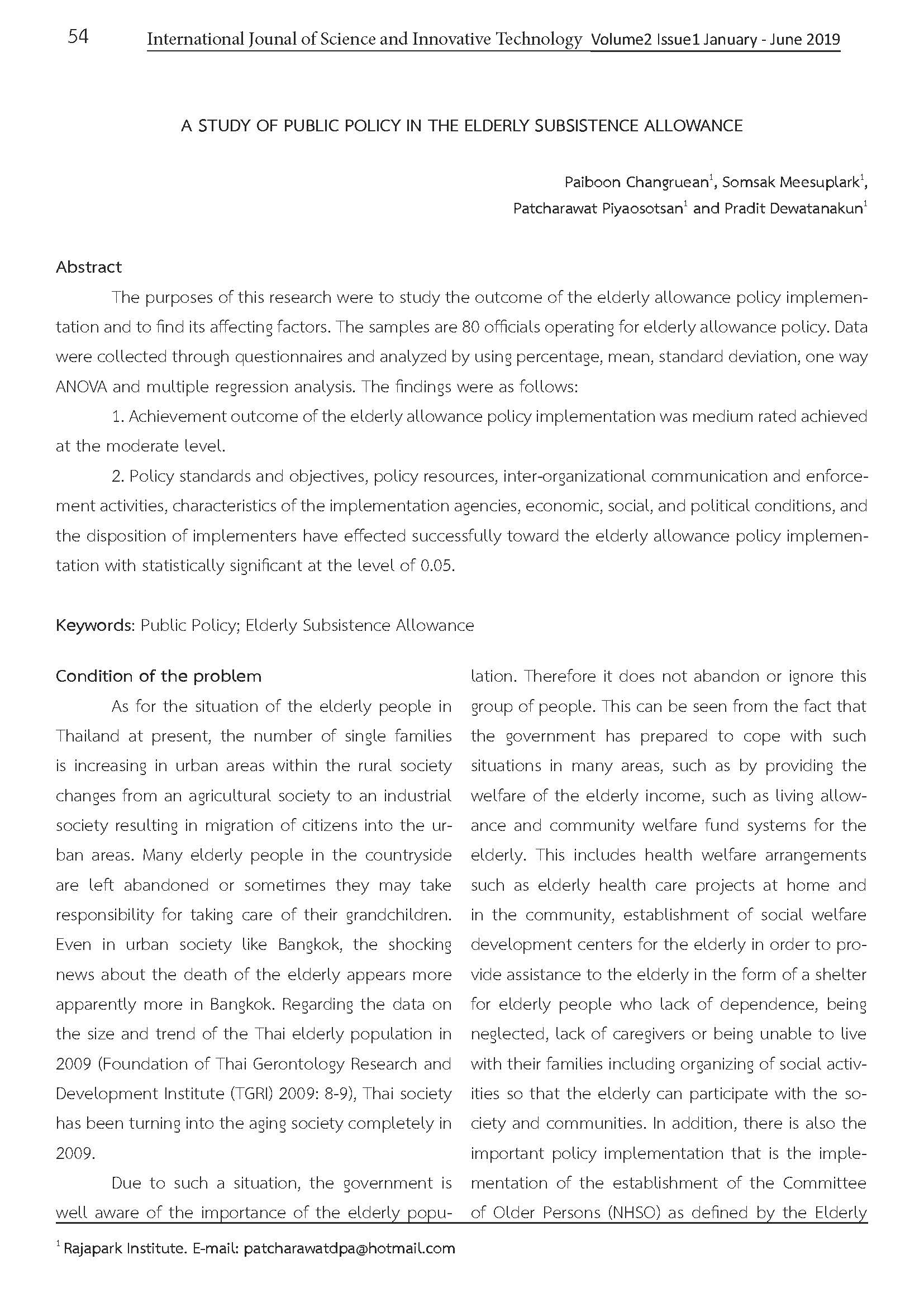A STUDY OF PUBLIC POLICY IN THE ELDERLY SUBSISTENCE ALLOWANCE
Main Article Content
Abstract
The purposes of this research were to study the outcome of the elderly allowance policy implementation and to find its affecting factors. The samples are 80 officials operating for elderly allowance policy. Data were collected through questionnaires and analyzed by using percentage, mean, standard deviation, one way ANOVA and multiple regression analysis. The findings were as follows:
1. Achievement outcome of the elderly allowance policy implementation was medium rated achieved at the moderate level.
2. Policy standards and objectives, policy resources, inter-organizational communication and enforcement activities, characteristics of the implementation agencies, economic, social, and political conditions, and the disposition of implementers have effected successfully toward the elderly allowance policy implementation with statistically significant at the level of 0.05.
Article Details
References
Watchara Chamnanrit. (1997) Guidelines in Organizing Activities for the Elderly in the Viewpoints of Employees
Working in the House Elderly Camillian Social Center.
Sombat Thamrongthanyawong (1987) Public Policy Analysis. Bangkok: Graduate School of Public Administration,
National Institute of Development Administration.


